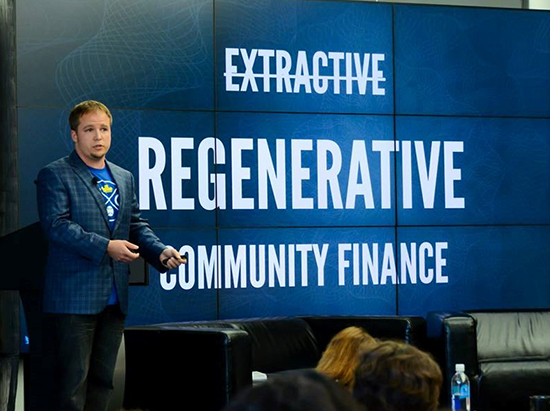When Parks and Recreation Meets Kickstarter
-
-
slice.mit.edu
- 1
Filed Under
Recommended

The point of civic projects is to meet the needs of the community—a statement that seems obvious—but after working for 10 years in civic technology Jase Wilson MCP ’08 found that this wasn’t always the case.
“In my studies at MIT DUSP—the study of cities from a variety of perspectives—I began noticing a weird sort of invisible force that just didn’t quite register,” says Wilson. “A community would want something simple, like a one-block park with benches, something pretty straightforward. The desired project would create lots of value, and it was the right size in the community's mind. But over the evolution of how projects like that manifest, it would become a three-block park and it would include fancy, unnecessary things. An invisible force was somehow guiding the decisions—whether that was the intention or not it was happening.”
Wilson realized that the root of the problem was the extractive nature of the public finance industry—with $1 billion dollars borrowed daily, almost entirely from sources outside the community, and the way that municipal bonds and civic project investments works. While the average citizen might have an interest in purchasing a municipal bond to help make a desired project happen, the market just isn’t structured to allow that—with minimum orders starting at upwards of $25,000 and high hidden fees. But with technology, says Wilson, that can be streamlined. “It turns out to be, in part, the profit motive of the ancient industry running the show now plus a rather boring, unsexy mechanical problem that keeps this aspect of how we build cities from working the way that we want it to work. But it’s perfectly solvable through technology. It’s the unit economics, the cost structure that prevents democratic market access and right-sized community-driven projects from happening.”
 Wilson started Neighborly in 2012 as a way to help people learn about and invest in community projects. When the company first started, the municipal bond market wasn't quite ready for big change, so they began with donation-based civic crowdfunding instead. Today, they’re fully building out the original idea, which allows individuals to purchase municipal bonds to invest in and make a difference in the community they live in.
Wilson started Neighborly in 2012 as a way to help people learn about and invest in community projects. When the company first started, the municipal bond market wasn't quite ready for big change, so they began with donation-based civic crowdfunding instead. Today, they’re fully building out the original idea, which allows individuals to purchase municipal bonds to invest in and make a difference in the community they live in.
The company now has nearly 10,000 people registered to purchase bonds in the system and is gaining recognition and funding nationwide, including $5.5 million in recent funding from Joe Lonsdale’s Formation 8 and Ashton Kutcher’s Sound Ventures, which they're using to recruit engineers.
Wilson’s focus nowadays, as CEO and founder of the company, is on recruiting and retaining the best team members, and reiterating the vision, which to him has always been to help our cities.
“After graduating from MIT in 2008, I didn’t know what I wanted to do but I knew why. To do something that could bring better efficiencies and a greater fit between the nature and scale of what’s being built in our nation’s cities and what those places want and need.”









Comments
Andrew Whitacre
Thu, 10/15/2015 4:18pm
And I'd like to call out the name of another alum, Rodrigo Davies (S.M., Comparative Media Studies, '14), who's now the Chief Product Officer at Neighborly: https://www.linkedin.com/in/rodrigodavies. He even wrote his master's thesis on civic crowdfunding: http://cmsw.mit.edu/civic-crowdfunding-participatory-communities-entrepreneurs-political-economy-place/. (But for all that, the smartest thing he's done is marry fellow MIT alum Erica Deahl, also CMS '14.)